
Blockchain Powered
Empowering the Future of Learning and Hiring with Verifiable Digital Credentials
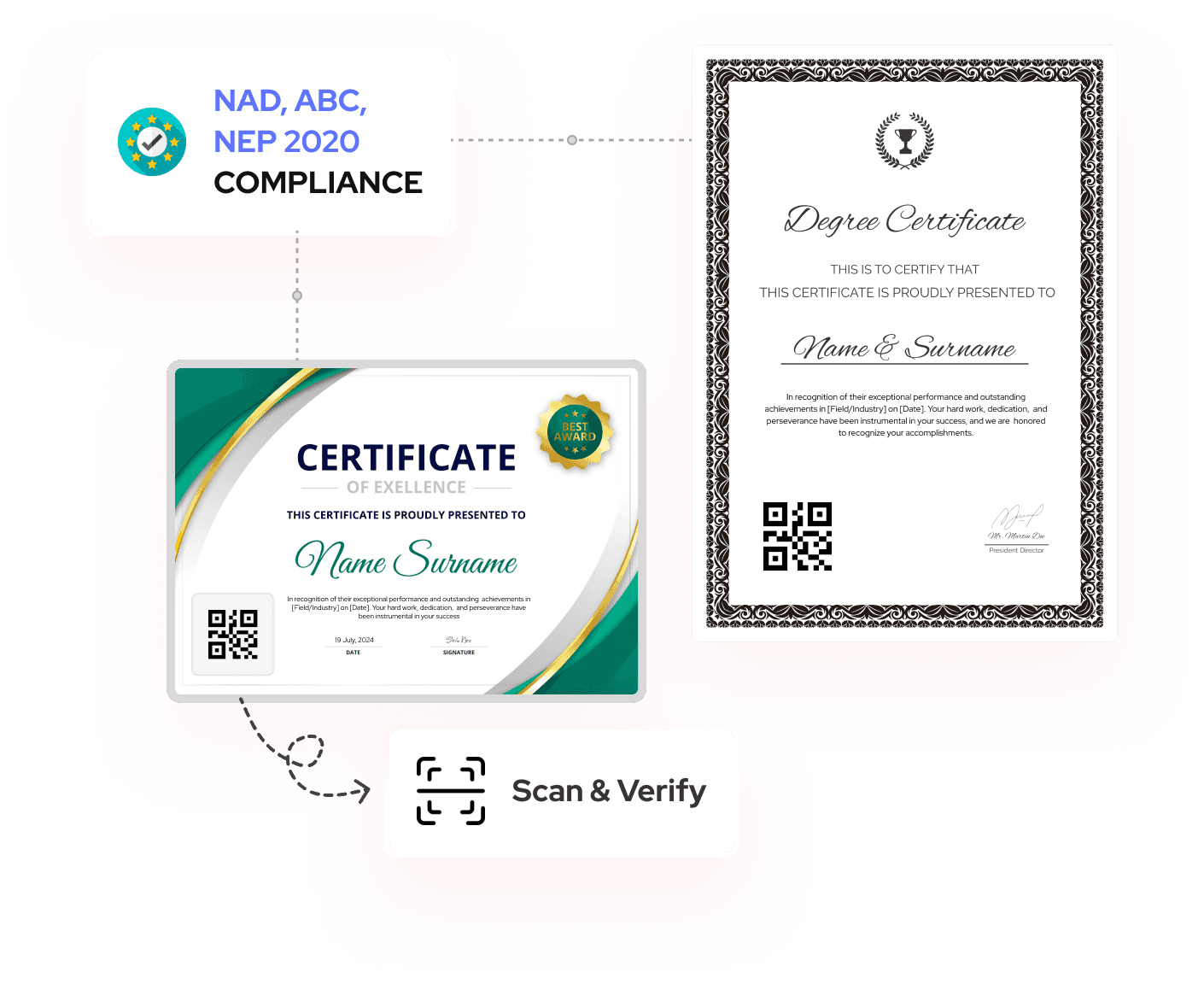
Trusted by 500+ Institutions & Corporations
Solution
Leading Universities Trust TruScholar
TruScholar offers blockchain-secured, tamper-proof credentials that ensure compliance, boost ratings, and open global opportunities with effortless integration.
Secure & Tamper-Proof Credentials
Ensure authenticity with blockchain-powered credentials that are verifiable and immune to alterations.
Boost Your NAAC Ratings
Seamless Integration With API & Zapier
Enhance Employement Opportunities
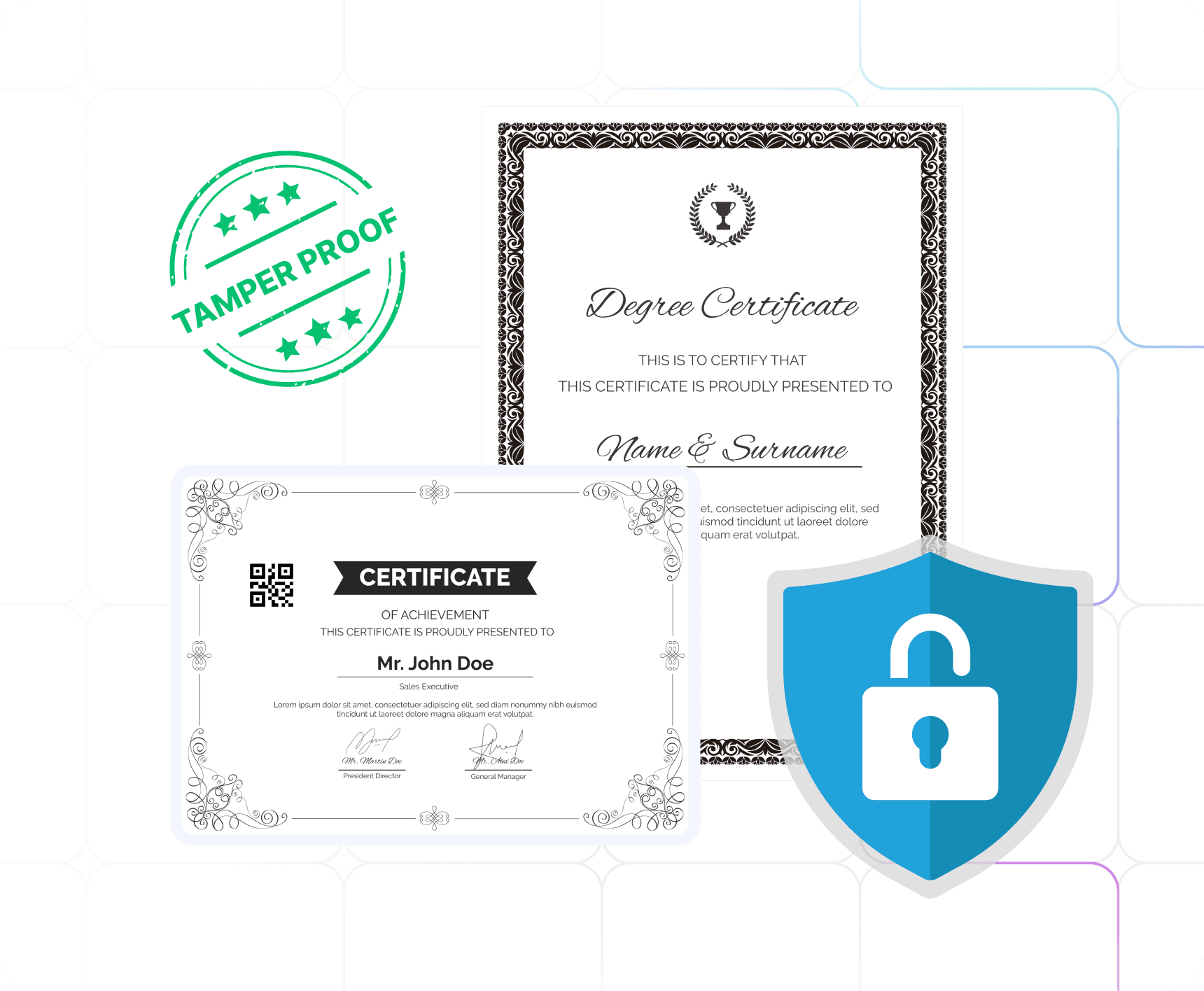
Value
Enhance Your Institution's Reputation
Our platform delivers secure, NAD and NEP2020-compliant digital credentials that boost NAAC ratings and streamline certificate management, enhancing operational efficiency and institutional credibility.
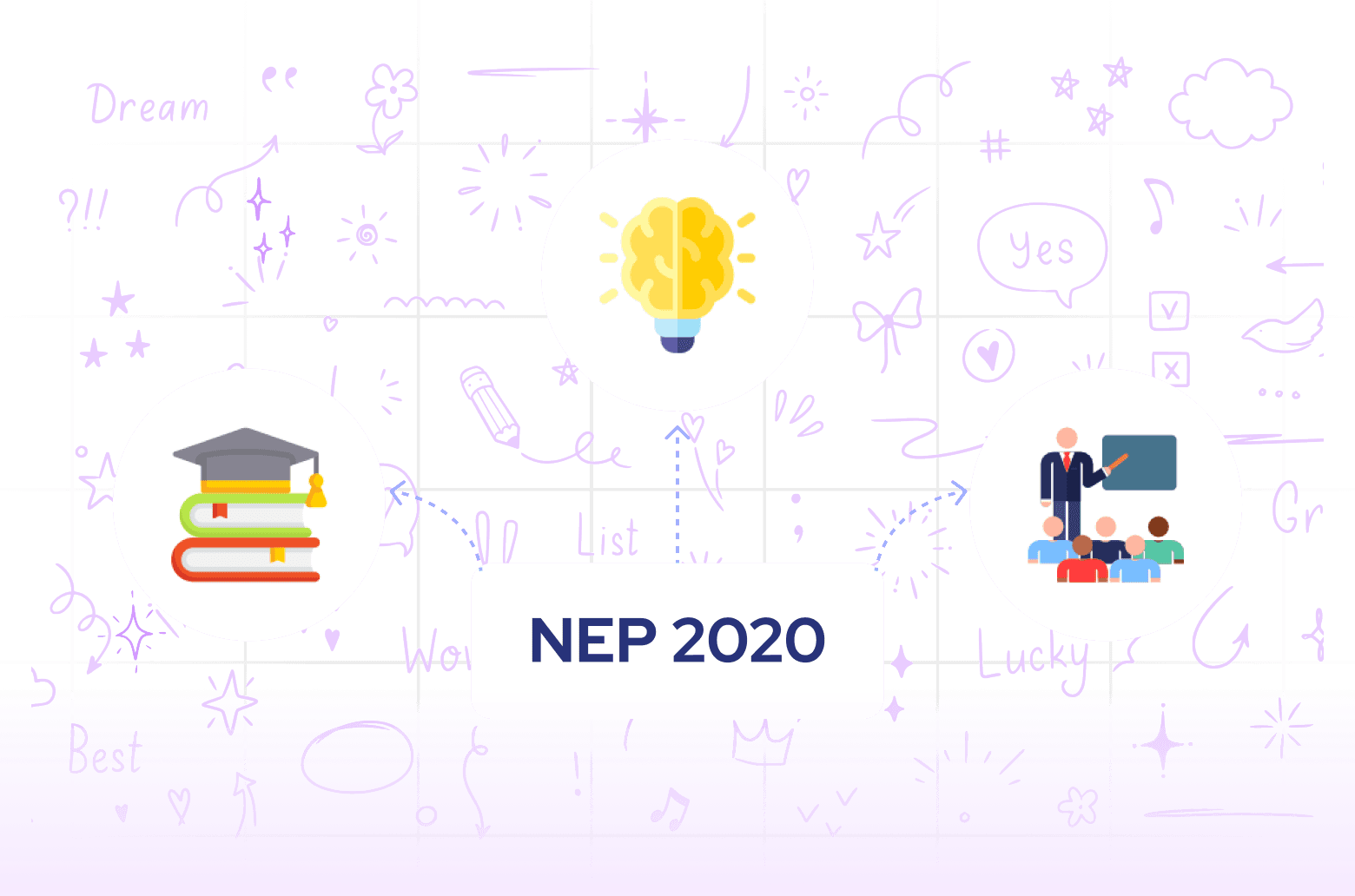
NEP 2020 Compliant
Ensure your institution meets the latest education policy standards.
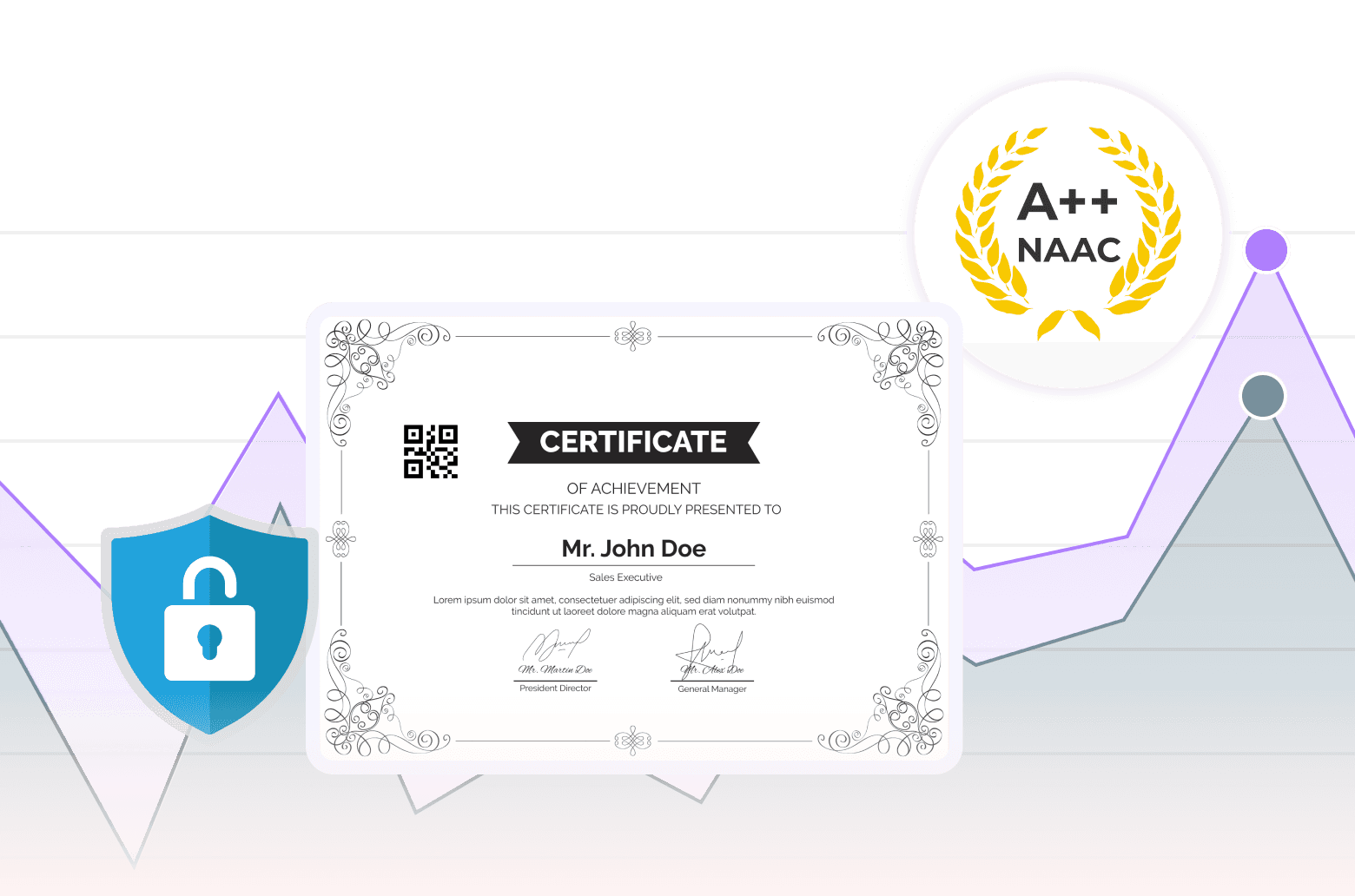
NAAC Rating Enhancement
Improve your institutional ratings with verified credentials.
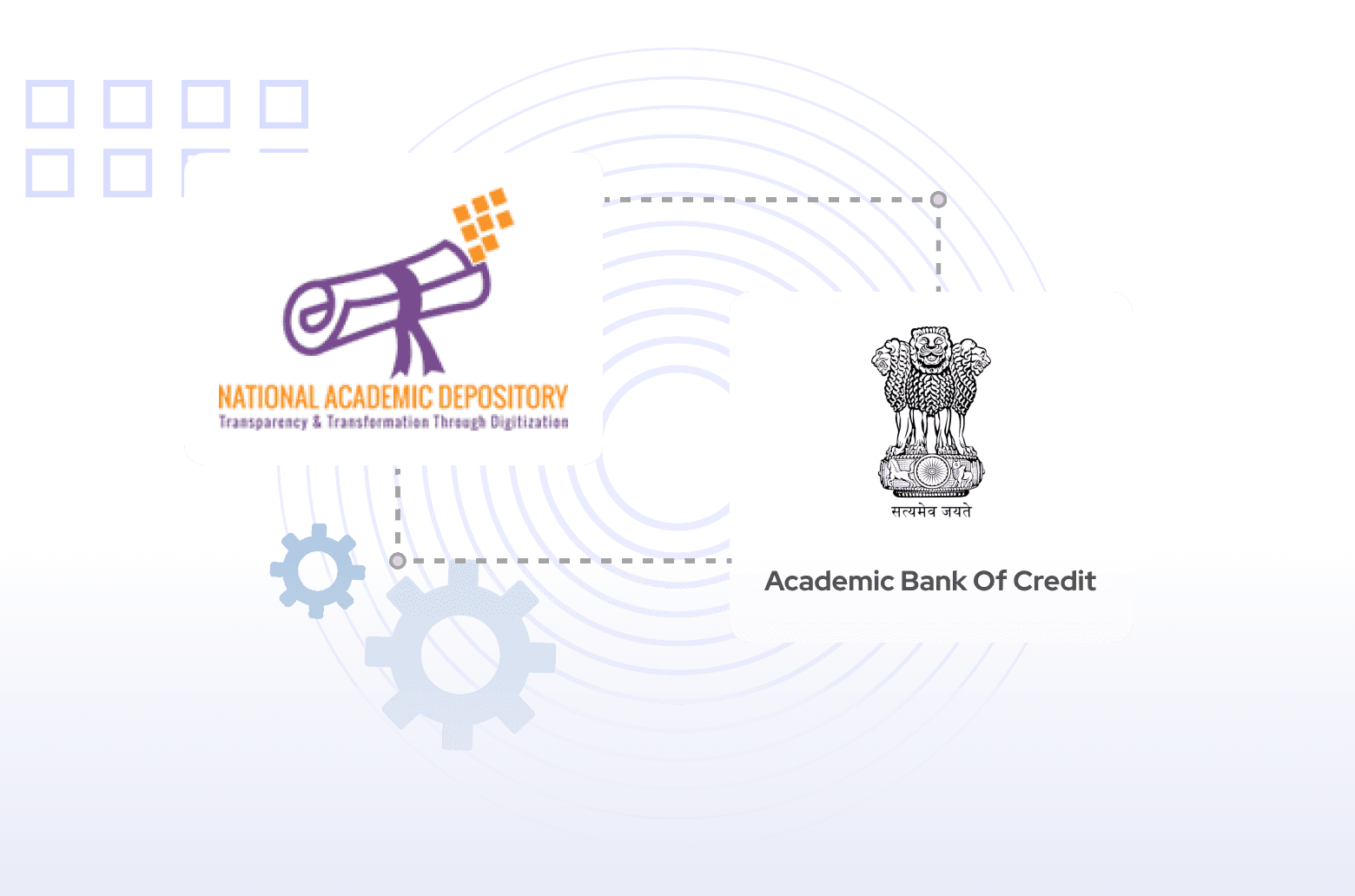
NAD/ABC Integration
Seamlessly integrate with national digital depositories.
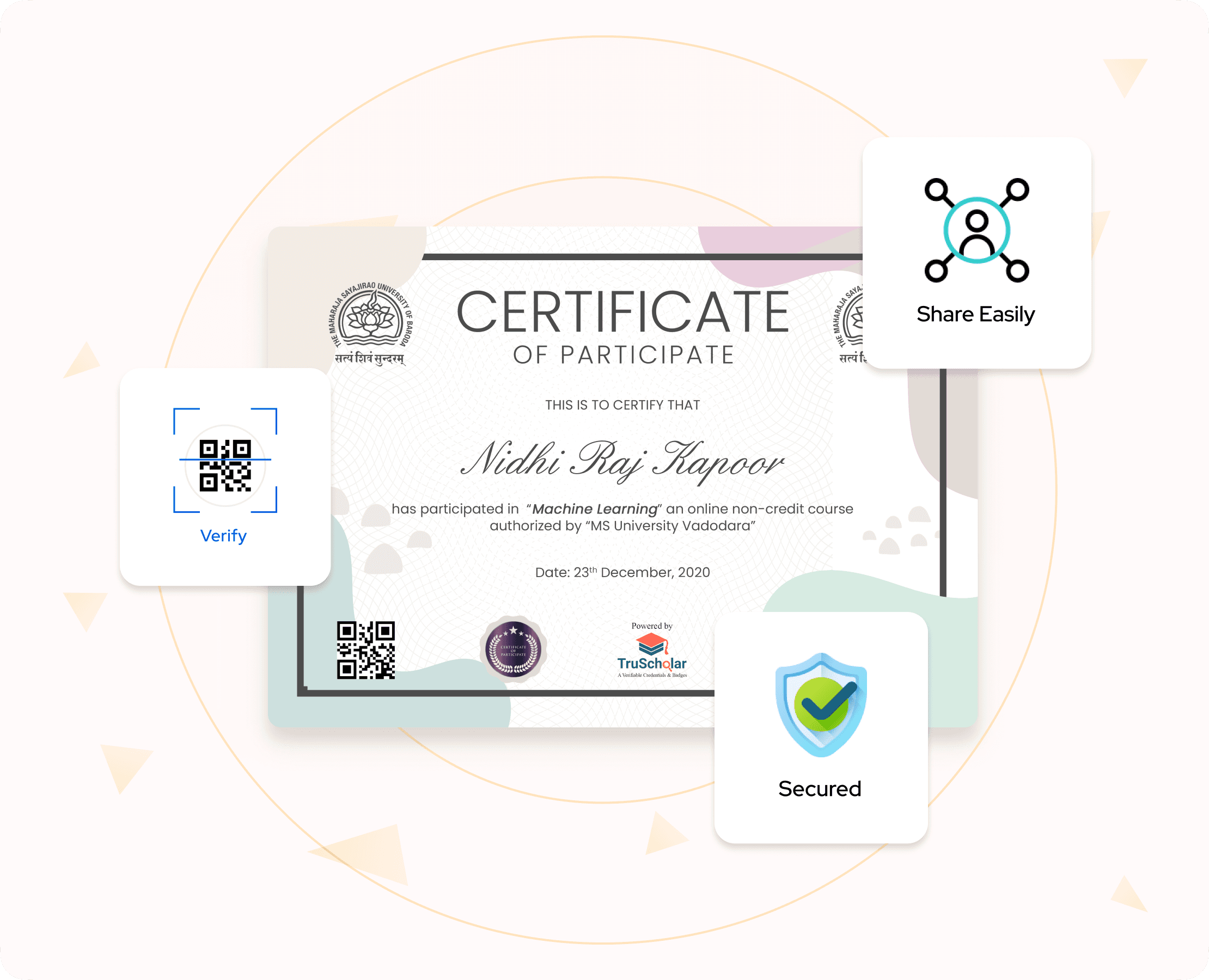
Digital Credential
What is a Digital Credential?
A digital credential is a digitally verified record of skills or achievements, secured by blockchain technology. It’s tamper-proof, easily verifiable and shareable, simplifying issuance while ensuring compliance and global accessibility.
Secured
Verifiable
Shareable
Easily Accessible
Testimonial
How Our Solution Transforms Leading Institutions

We've been using the TruScholar platform for certificate Issuance, and I'm thoroughly impressed with its efficiency and user-friendly interface. The process of issuing certificates has never been smoother. Strongly endorsed!

Mr. Sabyasachi Sen

TruScholar has streamlined our certification process immensely. With its user-friendly interface, we can quickly generate and distribute certificates to our students. platform's reliability ensures that our certificates are delivered securely and on time. It's been a

Mr. Sourabh Mishra

TruScholar platform has simplified our workflow and significantly reduced administrative overhead. The customizable templates allow us to create professional- looking certificates tailored to our brand. It's been a fantastic addition to our operations.

Mr. Balasahed Zarekar
Impact
Proven Impact Across Universities
TruScholar’s drives your growth by providing secure, verifiable, and globally recognized digital credentials.
%
Improved Student Engagement
%
Faster Accreditation Processes
+
Universities Onboarded
1
Million+
Digital Credentials Issued
BlockChain
Why Use Blockchain for Credentialing?
Blockchain technology enhances the security, transparency, and reliability of credentialing systems, making it the ideal solution for managing digital certificates.
Immutability
Transparency
Global Accessibility
Fraud Prevention
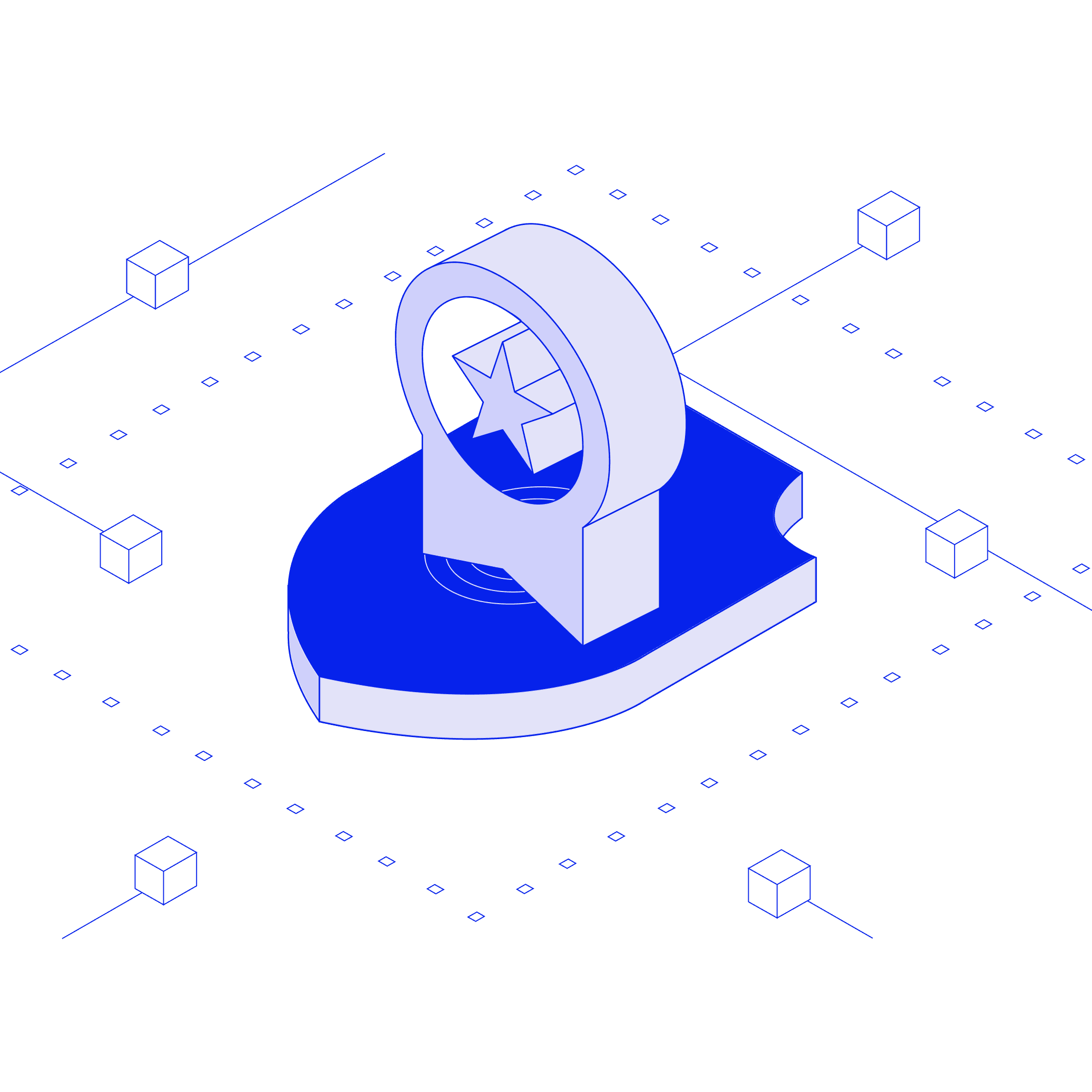
Support
Expert Support for Seamless Digital Credentialing
Experience seamless digital credentialing with expert support for data migration, efficient bulk issuance, and quick onboarding.
NAD Compliance Partner
We help you to setup NAD account to be NEP 2020 (National Education Policy) compliant
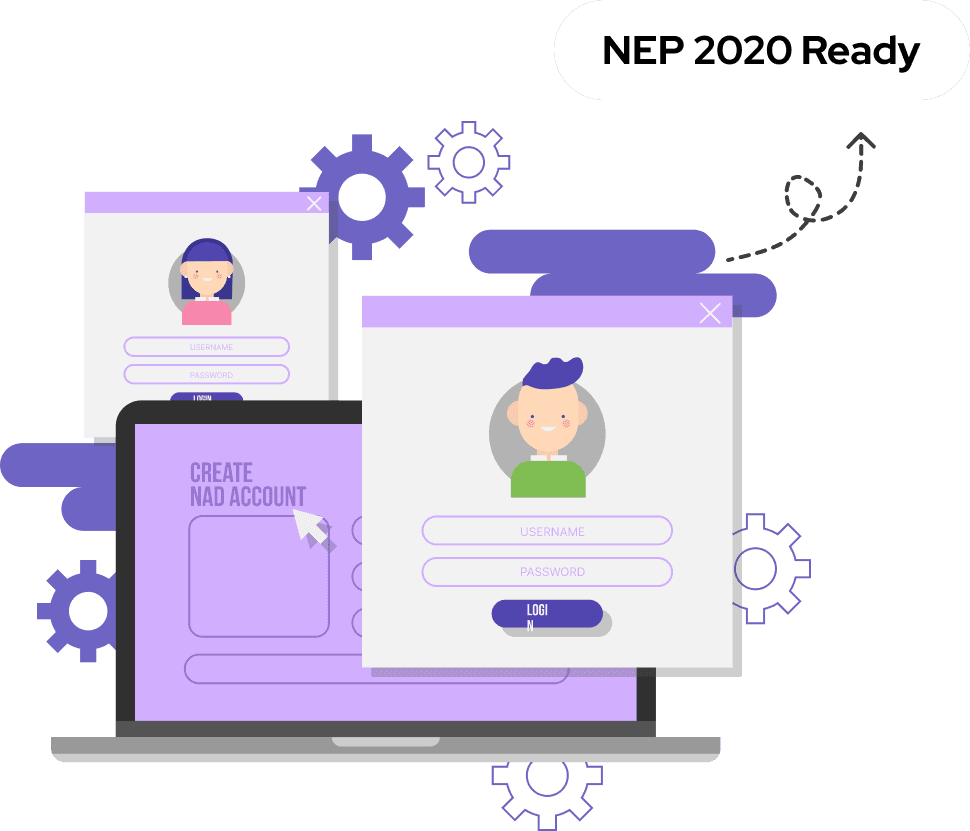
Bulk Issuance
Efficiently manage and issue large volumes of digital certificates with ease and accuracy.

Data Migration
Effortlessly transition your data to our platform with our expert migration support.


Ready to Elevate Your University with TruScholar?
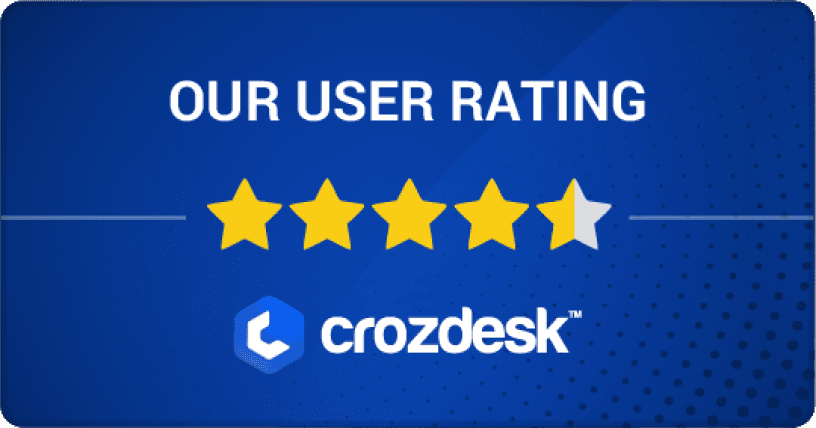


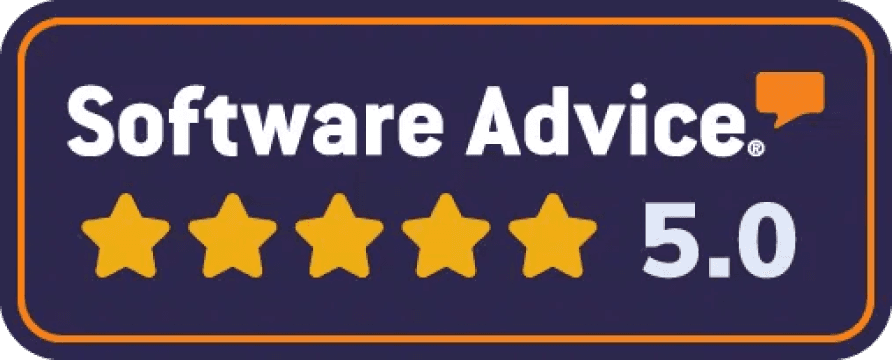
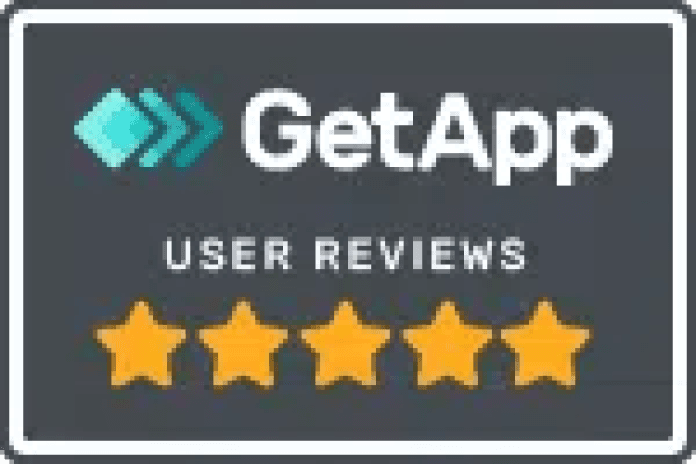
FAQ's
Frequently Asked Questions
What is meant by credentials?
A credential is a certificate of recognition for a skill or knowledge or experience you have gained. Your school, college, and university certificates are considered as credentials. Credentials can also be government issued identities such as Aadhar card, voter id, pan card etc.



























